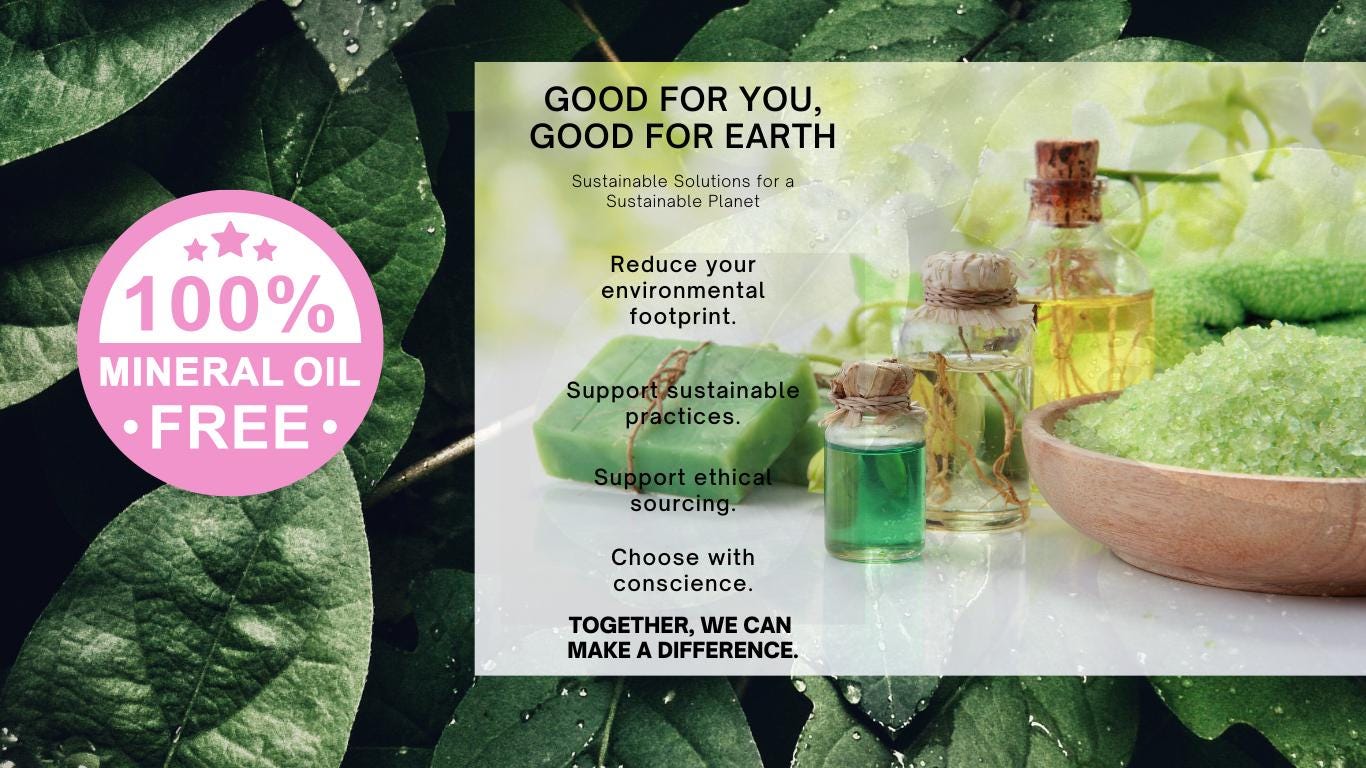As a handmade soap maker, I spend a lot of time thinking about what goes into the products we use on our skin. From nourishing butters to essential oils, every ingredient tells a story. Today, I want to talk about a common ingredient you might find in many skincare products: mineral oil. It's a topic that often sparks debate, and I want to share some insights and, ultimately, my personal philosophy behind why I choose not to use it in my soaps.
What is Mineral Oil and How is it Made?
At its core, mineral oil is a byproduct of petroleum distillation. Yes, the same process that refines crude oil into gasoline and other fuels also yields mineral oil. To be used in cosmetics and skincare, this raw material undergoes extensive refining and purification processes. This is crucial because unrefined mineral oil can contain harmful impurities. Through these rigorous processes, cosmetic-grade mineral oil becomes a highly refined, clear, odorless, and colorless liquid.
Deemed Safe? The Regulatory Perspective
Many regulatory bodies around the world, including the U.S. Food and Drug Administration (FDA) and the European Union, consider highly refined mineral oil to be safe for cosmetic and topical use. The argument is that the purification process removes the potentially harmful components, leaving behind a stable, non-comedogenic (meaning it's unlikely to clog pores), and non-irritating ingredient. It's often praised for its occlusive properties, forming a barrier on the skin that helps prevent moisture loss, making it a common emollient in lotions and creams.
The Controversy: Why Some Are Wary
Despite its widespread use and regulatory approval, mineral oil remains a controversial ingredient for many. The concerns often stem from a few key areas:
- Origin: For some, the very fact that it's a petroleum byproduct is a red flag. In an era where consumers are increasingly seeking out natural, plant-based, and sustainably sourced ingredients, a fossil fuel derivative can feel out of place, regardless of its refinement.
- "Breathing" Skin: A common concern is that mineral oil forms a film on the skin that prevents it from "breathing." While skin doesn't literally breathe in the way lungs do, the idea is that this occlusive layer might trap toxins or interfere with the skin's natural functions. Scientifically, skin primarily functions as a barrier and does not need to "breathe" in this manner, but the perception persists.
- Potential for Impurities (if not properly refined): While cosmetic-grade mineral oil is highly refined, the general public may not always distinguish between different grades or may worry about the possibility of trace impurities, fueling skepticism.
My Personal Stance: A Choice for Natural Goodness
As a maker of handmade soap, as well as other personal care products, my mission is to create products that not only cleanse, nourish and treat your skin with the utmost care. For me, that means choosing ingredients that align with a philosophy of natural goodness and transparency.
While I acknowledge the scientific arguments for the safety of highly refined mineral oil, and understand its widespread use in the industry, it is a personal decision that I choose not to include it in my products.
For me, the fact that it is a petroleum product, regardless of how refined it is, just doesn't sit right with my personal values regarding what I want to put on my own body, or what I want to offer to my customers. I believe there are abundant, effective, and wonderful plant-based alternatives – like rich olive oil, moisturizing coconut oil, and luxurious shea butter – that offer incredible benefits to the skin without any of the controversy or personal reservations.
My commitment is to crafting beautiful, nourishing products from ingredients you can feel good about. It's about transparency, quality, and a belief in the power of nature to nurture our bodies.

